Case studies and interviews
In our Resources section we ask the world’s leading wine critics and commentators the secrets of their success, and we profile internationally-known chefs and wine, hospitality and culinary professionals.
Interviews with nine of the world’s leading wine critics and writers
In the careers of these wine professionals there are some 200 years of experience. With a few key questions we’ve tried to get to the core of what it takes to succeed as a wine writer and communicator.
Their answers are detailed but could be summarised as:

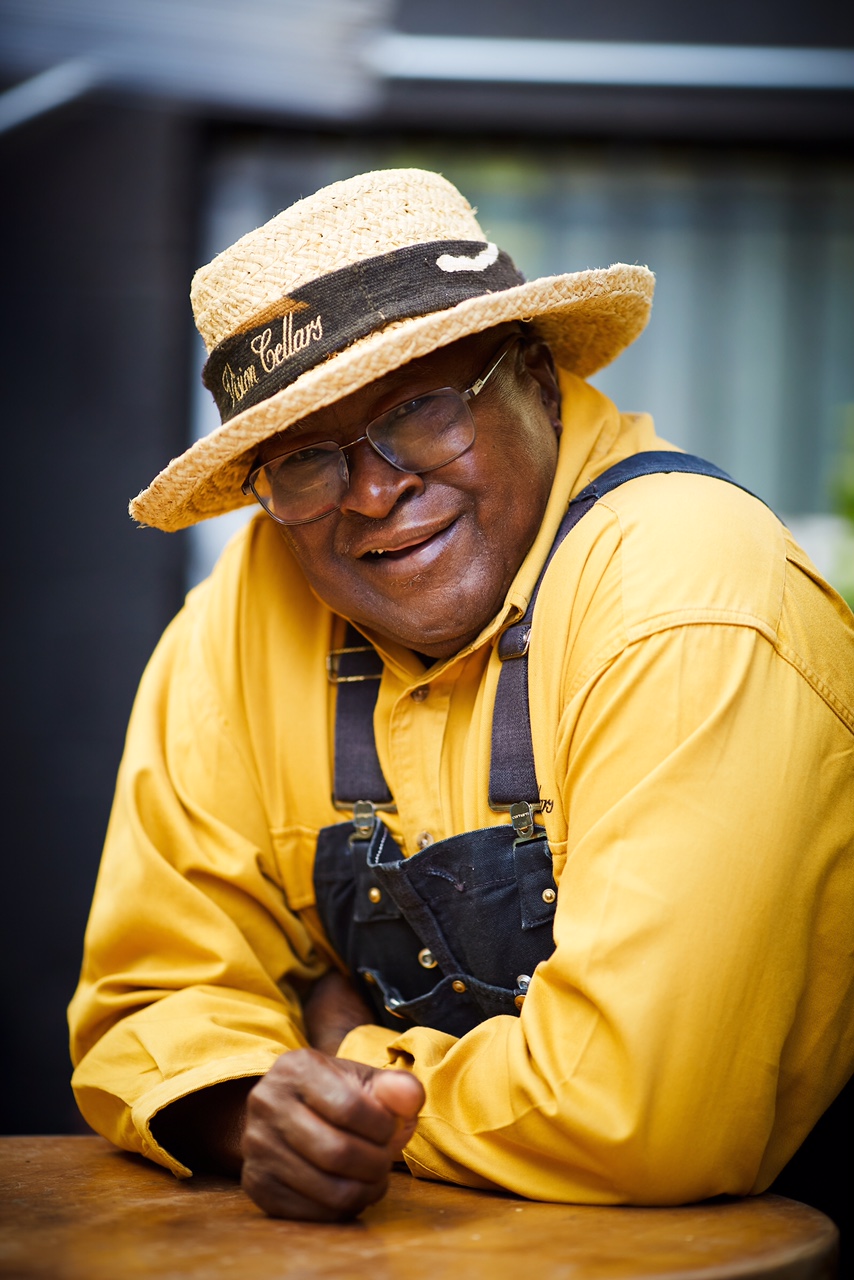
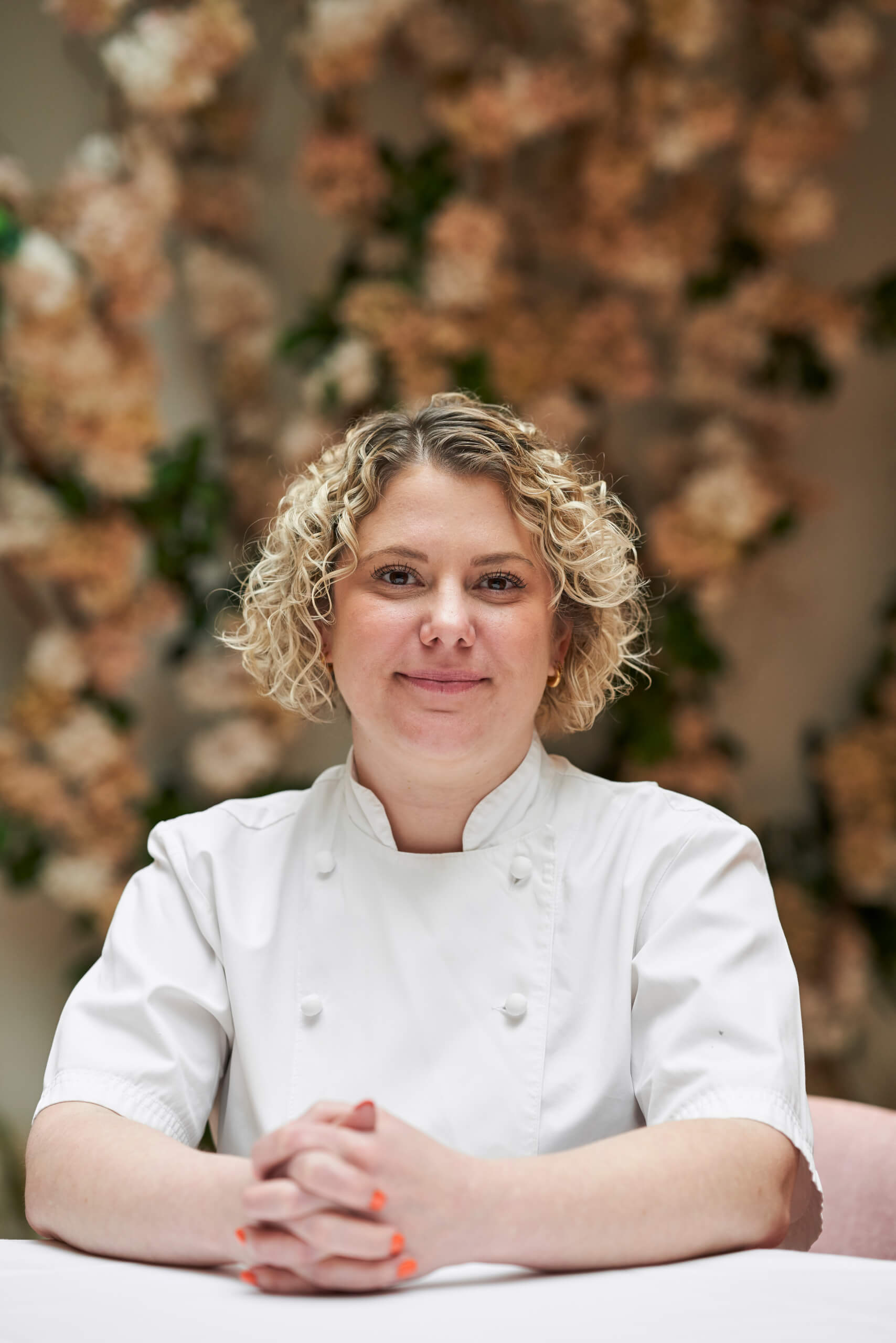
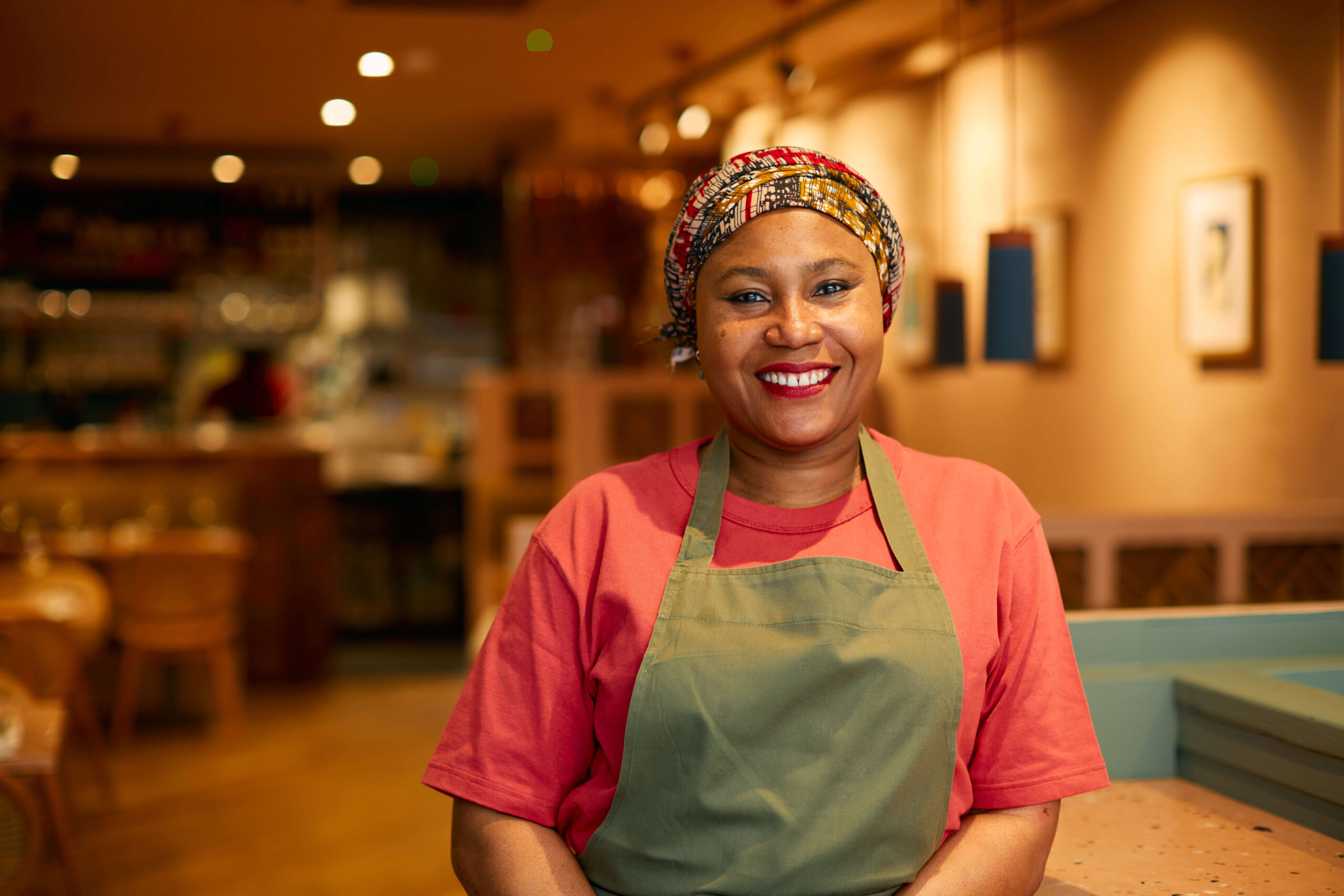
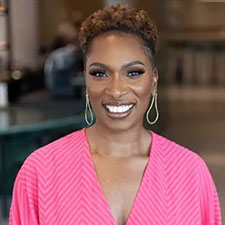
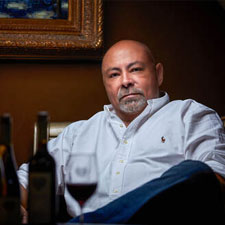

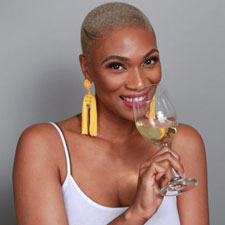

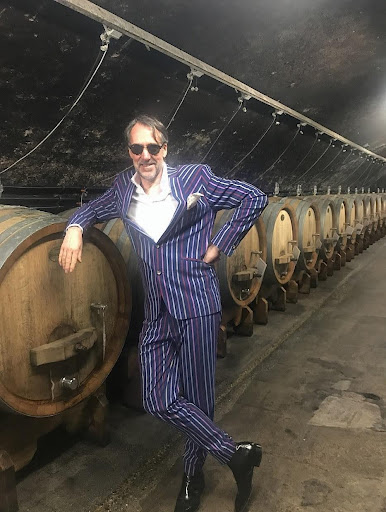
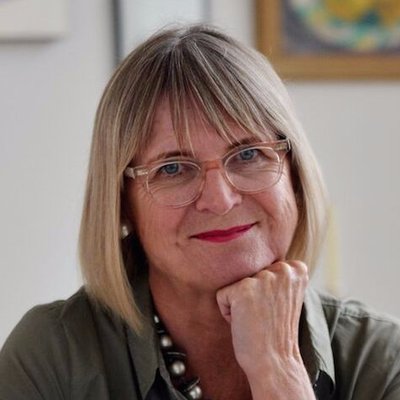
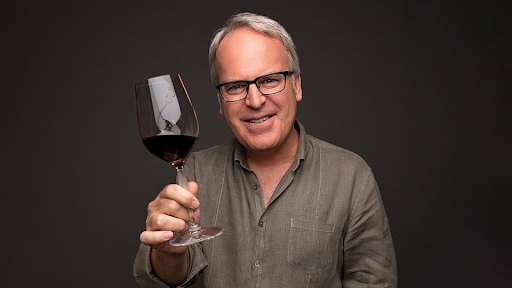

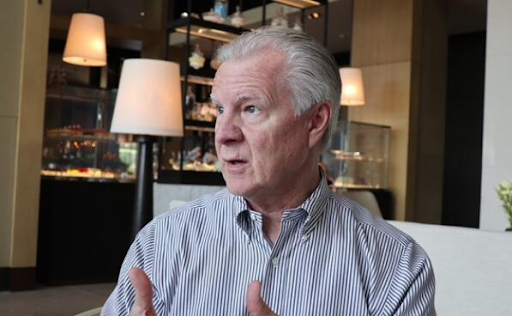
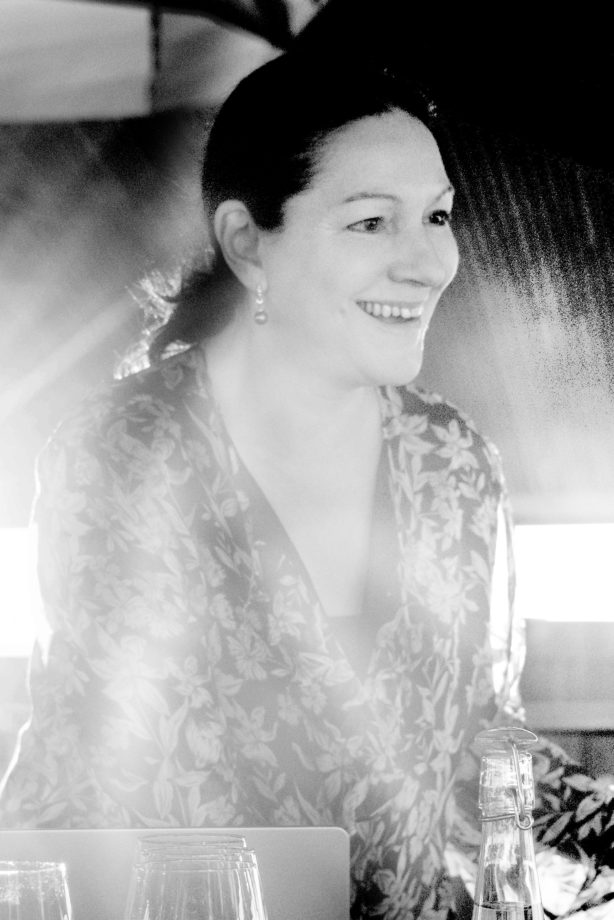
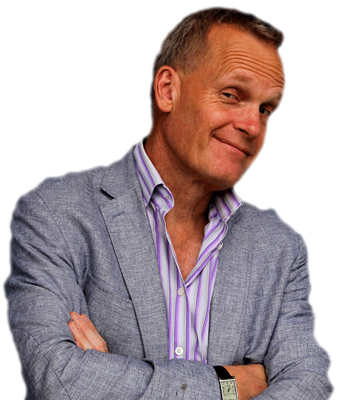

Instagram: @littlechefsally
thepemrestaurant.com
blueboarlondon.com
Interview by Chris Mercer

Award-winning chef Sally Abé grew up in Mansfield, Nottinghamshire. After starting a hospitality business management degree at Sheffield Hallam University, she was immersed in the world of professional kitchens in 2007 during a work placement in London – and has gone on to become one of the UK’s leading chefs.
She has worked at The Savoy, Gordon Ramsay at Claridges, and spent several years as sous-chef at two-Michelin-starred The Ledbury in Notting Hill (now three stars), with celebrated chef Brett Graham. Sally also worked at Elystan Street, before becoming head chef at the Harwood Arms gastropub, retaining its Michelin star.
In 2021, Abé joined Conrad London St. James hotel as consultant chef, and opened The Pem restaurant, which showcases and elevates the rich heritage of British cuisine and ingredients.
Sally Abé is a passionate advocate for young female chefs; she recently announced the appointment of Jennifer Collins as head chef at newly-refurbished The Pem.
Abé’s memoir, A Woman’s Place is in the Kitchen: Dispatches From Behind the Pass, is published by Little, Brown on 6 June 2024
I moved to Sheffield when I was 18, on a bit of a whim. I wasn’t really sure what I wanted to do. I was working in a dull job and I just got really into cooking at home. Then I decided to see if it was something I could make a career out of. My mum gave me Delia Smith’s Vegetarian [cookbook], and I wasn’t vegetarian but I was skint, so it made sense to do meat-free meals. I cooked my way through there, and that’s where it all started.
I’d already done A-levels, so they suggested I look into the Hospitality Business Management degree. I was just kind of rolling with it, really!
I got a placement with the Gordon Ramsay group. I was supposed to do six months in the kitchen and six months front-of-house, but I just got into the kitchen and thought, “I’m going to keep doing this”.
Within a couple of months. I’m quite a stubborn person, so once I got there I just wanted to learn everything and it used to really frustrate me when I couldn’t dice the vegetables perfectly or whatever it was. So, I would make little games for myself every day, just to get quicker and better. I think I just got completely immersed in it and then didn’t want to leave. By the time it came to looking at going back to University, I’d moved over to Claridges, because The Savoy was closing for its refurbishment. Basically, one of my sous-chefs talked me into staying.
I think you have to have a certain sort of mentality in one of those kitchens. You just have to be able to let things run off of you. You can’t dwell on what’s happened the previous day or even the previous service. It was very intense, very high pressure and I loved all of that. The only thing that was ever a struggle, and it’s a struggle for every person, were the hours. I don’t do those hours anymore. I think that the industry is changing, and it is a slow change but it is changing.
I think one of my biggest challenges was my confidence. There was quite a big period where I doubted myself; my ability, what I was doing, and what I wanted to achieve. It wasn’t easy, but I did overcome it. Through going to therapy and taking stock of everything that I had achieved, I was able to rationalise in my brain that I actually do deserve to be here. I think I use that as a sort of starting block for every new task that I take on.
This kind of change is not something that will happen overnight, but it’s certainly something that I think is improving. For me, it’s important to keep empowering women and promoting women and hiring women and training them up, so that they can go on and believe in themselves to do bigger and better things. My kitchen team is almost all female. It’s important to me to make sure that they get the right foot in the door for whatever it is they want to achieve in their career.
We did a series of events for International Women’s Day in March. We invited female students from Westminster Kingsway College to come and cook with us, just to get a bit of experience. They loved it. I think it was refreshing for them to be in a female- led kitchen, as well. I’m talking to the College about what we can do to continue that relationship.
We’re in Westminster, right in the thick of everything political, and we wanted to dedicate it to strong women. Emily Wilding is one that stuck out for me, not just because she tragically died at the Epsom Derby [June, 1913], but she also hid in the Houses of the Parliament on the night of the [1911] Census. She was a proper rebel, and that really resonated with me.
First of all, don’t be afraid to ask. I’ve got an apprentice who sent me a message on Instagram. Had she not had the courage to do that then she wouldn’t have got the answer. The worst someone can say is “no”, so just take that leap of faith.
Secondly, there’s so many great places to work out there now, with amazing bosses, companies, structures and cultures, that if you get somewhere and it’s not the way you want it to be, and you’re not being treated how you think is fair, then don’t stay. I think [it’s about] just finding the place that’s right for you. And then, once you do get in the door, ask lots of questions.
An interesting thing I’m seeing is that, before, it used to be that the only good restaurants were fine dining Michelin-star restaurants, whereas now we’ve got a plethora of restaurants that span many cuisines and many echelons of dining. It could be a casual meal, it could be some fried chicken, but it’s the best fried chicken. I think there’s a lot more opportunity for young people now to work somewhere that is really good and well recognised that doesn’t have to be, you know, two or three Michelin-star. I think that makes it much more accessible for people.
We’ve definitely got much more freedom to create now. It’s been really good. My new head chef, Jennifer Collins, started just before Christmas, so she’s been getting settled in and we’ve been going from strength to strength. I’m not just overseeing the Pem, but the Blue Boar Pub in the hotel now, as well. I work well under pressure, so I’m always looking for the next challenge, and for me it’s about being able to work with Jenny [head chef, The Pem], and Tarryn, my sous-chef, and help them progress through running the kitchen between them. It’s really nice to be able to give that opportunity to somebody else.
It’s a British menu. I find a lot of my recipe inspiration from really old cookbooks, and I think there’s so much to be examined and explored. I really love retro classics, and bringing them back to life and putting my own twist on them. We’ve got a take on beef and oyster pie as a main course; sirloin with a little ox cheek and oyster pie on the side, which is obviously a million miles from what it would have been in Victorian times, but the flavours work. That’s my heritage, so to nod to that is important to me.
When we’re putting new dishes on the menu, we’ll taste the food and the suggested wine together [with the sommelier team]. I’m a staunch Chardonnay girl myself, especially Californian Chardonnay.
[Spoiler alert: reference to the end of the film Ratatouille]
It’s so hard. I think my favourite thing to eat in the whole wide world is mashed potato and gravy. There’s just something so comforting about mashed potato. That nostalgia element to food, for me, is the most important thing. Have you seen the film Ratatouille? At the end of the film, where [the dish] makes the critic cry because he goes back to being a child… that is really what food is all about.

Jane Anson has lived in Bordeaux since 2003 and is author of six major wine books: Inside Bordeaux (BB&R Press 2020), Haut-Bailly (First Press Editions 2021), Wine Revolution (Quarto 2017), The Club of Nine (Katz Publishing 2016), Angélus (Editions de la Martiniere, 2016), and Bordeaux Legends, a history of the 1855 First Growth wines (Stewart, Tabori & Chang, 2013, and re-released as an NFT ebook in 2022); she is also co-author or translator of over a dozen wine and travel books.
She has won several awards, including Louis Roederer Wine Online Communicator of the Year 2020, and Born Digital Best Editorial 2020. She is also winner of the IWSC 2023 Wine Communicator Trophy.
Jane Anson was the first woman to deliver the André Simon lecture for the International Wine and Food Society since the lecture series began in 1971, speaking in June 2020 on the subject of terroir in Bordeaux. After almost 20 years as Bordeaux correspondent and columnist for Decanter magazine, she has now launched her own website, janeanson.com
She is a graduate of the DUAD tasting diploma with the Bordeaux Institute of Oenology and an accredited wine teacher at the Bordeaux Ecole du Vin.
To realise that I had to make things happen for myself and not wait for job advancements to be offered. For me, that meant deciding to take the DUAD tasting diploma at the Bordeaux School of Oenology and to write a book about the First Growths back in 2012 and hustling enough to make it happen! There are many wine journalists out there, so investing in yourself is crucial.
No, in that I didn’t work in the wine trade before writing about wine, I wasn’t employed full-time by a wine publication, and I didn’t have an agent for my first book (or rather I did have an agent, but as he didn’t place the book with a publisher, I went a different route to find one rather than giving up). Having said that I had been a journalist and editor-in-chief of non-wine publications/websites beforehand, so was bringing writing experience, and was living full-time in a wine region, so of course had access to the source material.
I am not sure that is for me to judge, but I hope that starting the Bordeaux Mentor Week with my friend Chinedu Rita-Rosa will help to just slightly disrupt the closed nature of Bordeaux.
I still love writing books which is of course old media, but I primarily communicate online and through podcasts, and during the pandemic did a lot of online wine tastings. Leaving an established wine media publication to launch my own site was partly done in recognition that it is important to own my own tasting notes, and data, in a changing media landscape. And I also now do more in-person events, partly to be honest because I enjoyed the online tastings so much during the pandemic, and I love the energy of being in a room sharing the experience of a great wine.
My subscribers have a generally high level of knowledge, with a relatively even split of the different groups, but I always love to see how many are keen amateurs rather than professionals in the wine trade. But I always try, even for professionals, to keep writing clear and precise, because good writing about any subject should be enjoyable and digestible.
100%. Nothing gives me more pleasure than writing books, and right now I am at the start of a new one, at that wonderful moment of research and delving into new worlds that makes me happier than anything else! Similarly, long-form articles that you find in (for example) the New Yorker or World of Fine Wine remain one of the true pleasures of writing and reading.
I try to always keep in mind that you can only worry about how you are doing your own job, and to keep on trying to push yourself to improve. Keeping that in mind, my attitude to influencers or other more traditional wine writers would be exactly the same – respect if they are doing a good job. Sommeliers can be amazing wine influencers, and people such Pascaline Lepeltier and Isis Daniel are doing great work, as is Germaine Stone (his Saskia de Rothshild interview was so good https://wineandhiphop.com/podcasts/episode-76-bronx-ii-bordeaux-featuring-saskia-de-rothschild).
Fractured, obviously, increasingly so. Great content is essential, but not enough.
The issue with wine writing is how to make it financially viable. For that to really work, my personal suggestion is not to do things for free, to develop your knowledge and invest in yourself, and to specialise.
Yes, because I enjoy the wider aspects of wine, and so try to share that. And because it’s about balance, as in all things. But when I’m writing about wine, I take it seriously, and make sure that I know the subject that I am covering, and keep to the basics of journalism – do the research, interview directly, check and check again, put things in context. And respect the reader.

Jancis Robinson grew up in Cumbria in the north of England. “Eighteen years in a village of 40 people with no playmates and no fleshpots,” is how she has described it. She read Maths & Philosophy at Oxford and although she loved wine, writing about it wasn’t a career option in the early 1970s so she spent three years in the travel business as a graduate trainee with Thomson’s Holidays. In 1975 she started as assistant editor of the British wine trade magazine Wine & Spirit; in 1984 she was the first person outside the wine trade to become an MW; from 1995 until 2010 she was British Airways‘ wine consultant, supervising the BA Concorde cellar. She appeared in a 10-episode wine course on BBC2 (one of the very few successful TV wine shows) and has notched up more awards and honours (including OBE in 2003) than any other wine writer. Many consider her greatest achievement is the magisterial Oxford Companion to Wine, now in its fifth edition, although the 1,200-page Wine Grapes (2012) has won more awards. Robinson launched jancisrobinson.com in 2000, and put up a paywall in 2001. She describes herself as “deeply cynical and sceptical. I don’t accept the given line.”
In 2021 jancisrobinson.com was sold to Recurrent Ventures, a US digital media company. “Our values of integrity, authenticity, independence and trustworthiness remain the same and will be zealously guarded,” she said, adding (in bold), “I have no intention whatsoever of retiring.” So far she has remained true to her word.
See also https://cluboenologique.com/story/wine-websites-behind-the-paywall-jancisrobinson-com/
To actively look for a job in either food or wine so soon after the topics were regarded as frivolous in the UK (early 70s). Didn’t dare consider it when I graduated from Oxford in 1971.
Not at all – a succession of external stimuli, and a healthy dose of luck, as well as being around at just the right time when the UK was falling in love with wine. I never had a career plan but over time was asked or urged to found a wine newsletter (which I sold to Consumers’ Association), write a book, be Sunday Times wine correspondent, present a tv series, found a wine website etc etc
In 2000 it was fairly novel to found an independent wine website without any income stream (no ads, no sponsorship) and then in 2001 it was even more unusual to add a paywall and then to prove JancisRobinson.com could be editorially and financially successful with members in nearly 100 countries and winning awards and plaudits.
The pandemic has if anything been positive rather than negative for JR.com with everyone spending so much time online and wine playing an important part in many people’s lives. We took steps such as offering free membership to those laid off from the hospitality industry and providing a free guide to retailers who would supply self-isolators.
I don’t have stats (and I’m not sure how honest people would be about their own level of expertise) but most members who post of the forum are reasonably knowledgeable. And the range of interest is far wider than the usual investment-grade classics. People love the underdogs and the new and recently-revived wine regions.
I take issue with that ‘old fashioned’ description! And JancisRobinson.com is nothing if not digital.
I’m afraid I’m of a background and generation that is extremely suspicious of what you might call “professional influencers”. My training as a journalist leaves me with a horror of advertorial of any sort. I have worked extremely hard to keep my distance from producers, importers and retailers. The closest I get to a commercial connection is to help choose wine for the Queen. So I just keep my head down and do my job. I read that article in The Times recently about wine influencers and had never heard of any of them I’m afraid.
These comments apply to those who deliberately approach producers and ask for a payment in exchange for exposure.
But I am delighted by the emergence of what you might call ’soft influencers’, wine commentators who have managed to carve out a reputation and persona for themselves via social media which is proving so much more powerful and welcoming to new voices than the traditional media. These soft influencers bring a host of new perspectives and language to the world of wine. They are doing their bit to make wine appeal to younger consumers.
I’m thrilled that the wine world has expanded to such an extent, and now includes so many
more regions, grape varieties and wine styles. I’ve heard various wine drinkers bemoaning the fact that few newcomers to wine nowadays can afford the trophy wines, the most sought-after wines from classic regions. But I don’t think that matters. There is so much more to choose from today. In fact I might even suggest that some of those worried about sky-high prices for the supposed top wines should broaden their horizons and taste a bit more widely, with blinkers off.

Antonio Galloni grew up in Caracas, Venezuela, where his parents retailed Italian wines and his maternal grandfather talked to him of his love for Bordeaux, Burgundy and the Rhône. Galloni studied jazz composition and guitar at Boston’s Berklee College of Music; he went on to play electric and acoustic guitar and mandolin in Berklee’s Country Music Ensemble for two years before “burning out” and getting a job waiting tables, where he became exposed to the wines of California. He then got a job at Putnam Investments in Boston and was sent on assignment to Milan, where he fell in love with Italian wines. There followed an MBA at MIT Sloan School of Management, but “Barolo resonated more deeply than options and derivatives” and he started a newsletter focusing on the wines of Piedmont in 2003. Piedmont Report soon had subscribers in more than 25 countries. Galloni joined The Wine Advocate as Italian wine critic in 2006 and in 2013 he left to start Vinous.
See also https://cluboenologique.com/story/wine-websites-behind-the-paywall-vinous/
Starting Vinous is the best career decision I ever made. Our vision was to create a platform for wine lovers that would attract the brightest writing talent. I think our track record in that speaks for itself.
Non-conventional for sure, but each of my experiences has given me essential tools and prepared me for what we are doing today. I did not attend university but instead went to music school. There I learned composition, improvisation and how to be a bandleader, all concepts that apply to Vinous. My MBA studies gave me the confidence to experiment and try new things. My prior career in finance taught me how to lead an organization in times of severe uncertainty and stress. And of course, it all started with my parents, who taught me how to be an entrepreneur.
The legacy landscape is pretty staid. Decanter, Wine Advocate, Wine Spectator – the big wine publications were established decades ago. Vinous will be eight years old this year. We are the only new large-scale, diversified publication that has been successful in wine in the last several decades.
Vinous has emerged as a major review publication and has innovated in putting complementary services together (such as Delectable to help people track their wine experiences and Cellar Watch to manage and value cellars). We have introduced products and services with the aim of delivering information how people want it, when they want it. Although you could call this disruption because it changed the status quo of how people interface with wine, we instead view it as helping to grow the pie. We facilitate better decision making and help others achieve success. “Constructive disruption” might better characterize our approach.
My view is that I want to see the culture of wine grow, and if it grows then Vinous will be just fine – I’m not interested in disenfranchising other publications [Vinous has joined forces with Wine Spectator to mount an auction in support of the hospitality industry].
Exactly. Delectable’s audience will become the collectors of the future. They are 10-15 years younger than the Vinous audience and also 40% female [Galloni also makes the point that Delectable subscribers are slightly above Vivino’s in that they go for Bordeaux Superieur, Fronsac, Village level Burgundy rather than supermarket wines.] The difference between Delectable and Vinous is like the difference between eating at the chicken joint down the street, and going to Clare Smyth. You’d be happy with a crowdsourced review for the first but for the Michelin-starred restaurant you might want a professional review
We had our best year ever in 2020, so I would say, ‘yes’. We met the challenges we faced by innovating and adapting. Our critics are used to spending months on the road tasting wine. This wasn’t possible but we’ve published nearly 30,000 reviews since travel restrictions were introduced. We moved all of our events online and were thrilled at the reception of our Vinous Learn program focused on Napa Valley, our Festa del Piemonte week-long series of events, and smaller seminars like our Roumier masterclass. We also introduced Vinous Live, a series of interviews with the most influential figures in our industry. Lastly, we launched new products, including our new API program [this allows trade subscribers to link Vinous reviews to Liv-ex performance data for integration into their own platforms].
One of the things we have learned during the pandemic is that our audience is mostly high-end collectors and wine lovers who are on that trajectory.
The pace at which wines are released and their sheer numbers makes digital the only truly effective format for a publication. But our reviews are temporal – the reviews are published and the wines are bought and you wonder what is left of what you’ve done. My goal is to make a personal and permanent contribution to our field; the maps have the potential to be that – they are the most extensive maps ever made of the California wine region. I think in a generation’s time this will be looked at as an incredible contribution – much more so than what I think of the 2008 Branaire Ducru. They’re not economically viable but we do them because we love them.
I always want this to be more than just reviews: it’s about engagement. Our audience is a community and we need to offer the complete holistic experience – for example with online seminars they will buy the wines and I’ll do a zoom class to discuss them. Our lifestyle content is “nice to have”; our writers are creative people and creative people need outlets – an album review is some way for them to take all his energy and channel it and come back to wine refreshed.
I am a big fan of anyone who can increase wine culture and the appreciation for wine, irrespective of their medium or approach. The best will rise. Neal Martin and I were the influencers of 15 years ago, pre-Instagram. Neal had Wine Journal which was free and that was a stepping stone to the most influential wine site [Martin was taken on by Wine Advocate in 2006 and joined Vinous in 2017]. My first site was free then by voluntary contribution then subscribers.
That’s a wonderful thing and nothing to be afraid of. Influencers have the potential to do what we do. We have a writing competition because we believe in creating an environment for younger voices.
My biggest influences are Robert Parker and Allen Meadows. When I read their writing, I am reading the opinions of critics who started as avid consumers. That passion eventually led to them starting successful businesses, something that is very hard to do. I feel like I am reading reviews by someone who has been buying, drinking and collecting wines for decades. They convey the same thrills and disappointments as the rest of us do when wines exceed or don’t live up to expectations. That is very different from reviews written by people who come from the trade.
Sadly, there is not much true wine criticism left today. What we have are many people who write tasting notes, some of them very well, and who assign scores. But there are very few critics who actually offer original critical opinion and insight, which means calling out underperformers when merited.
Once the world sees you as a specialist you can take that standard and apply it to other areas. When I was at Wine Advocate I took on Champagne. My specialism was Italy but no-one doubted my credentials because I was established at a high level as an Italian wine critic. As a specialist you’re not narrowing your options, you’re really well known for something and that puts you in an elite category.
It is essential that we pay decent rates in the wine business otherwise people are going to decide that wine is too difficult and they will go and work in finance. There has to be a path to make them feel they can make a living. If not we’re going to lose people to other industries
Clearly COVID-19 has been deeply troubling on a human and personal level. I believe we will be feeling the toll of this pandemic for many years to come. At the same time, crisis creates opportunity. We continue to look at everything we do and think about how we can continuously improve how we deliver our services. I have never been more excited about our business and our prospects than I am now.

A graduate in English literature and performing arts, Lisa Perrotti-Brown – who grew up in rural Maine, USA – took a job as manager of a wine bar while living in London and trying to make it as a playwright. Moving to Tokyo with her husband in 2002, she worked as a buyer for a Japanese importer and as a wine educator at Tokyo’s Academie du Vin (an offshoot of Steven Spurrier’s Parisian wine school). She began writing a column for eRobertParker.com in 2008, and became an MW in the same year. In 2013, she became the editor-in-chief for Robert Parker Wine Advocate and RobertParker.com. Her first book, Taste Like a Wine Critic: A Guide to Understanding Wine Quality, was published in 2015. In 2021 she left Robert Parker Wine Advocate to become co-founder of The Wine Independent. As well as being the Editor-in-Chief of The Wine Independent, she covers the regions of California and Bordeaux.
To move from London to Japan in 2002. I had been living in London for 12 years. I had a great career working for Paragon Vintners (a distribution company jointly owned by Veuve Clicquot and Baron Philippe de Rothschild). I had just started doing my Master of Wine. Then my husband, who was working at Nomura Bank in London, was offered an opportunity in Tokyo. It was his dream. We had to go – it was a once in a lifetime opportunity for him. At the time, I thought it would be the death of my wine career. It was a huge leap of faith, but it turned out to be the best decision I’d ever made. After about a month of being a bored ex-pat wife, I got a part-time job teaching at the Académie du Vin wine school in Tokyo. I met Steven Spurrier. Then I got a full-time job working as a wine buyer for a fine wine importer. Then I met Robert Parker. When we moved to Singapore in 2008, I began working for the Wine Advocate, reviewing the wines of Australia and New Zealand and writing about the Asian wine scene.
Well, yes and no, I started off, just on a fluke, working in a wine bar. I came to London because I’d been there for a year studying English literature and performing arts. I just fell in love with London, so as soon as I graduated from college in the US, I got on a plane (literally the same day) and went straight back to London to become a playwright. But playwriting doesn’t really pay a lot of money, especially in the early days. And so a friend of mine was managing a wine bar in Pimlico and he needed bar staff. All I knew was that there were three colours of wine. White and pink you put in the fridge and red you don’t.
And then about six months in, my friend left to manage another wine bar so there was a position open. I put all my acting skills to the test and they fell for my bluff. That was the springboard. Then after being there for a few years I just wrote to every single wine merchant in London asking for a job. And Corney & Barrow eventually offered me an on-trade sales position open. So, from then on, it was more conventional. And then taking that leap of faith, going to Tokyo and eventually coming back to my original passion, which is writing. I wouldn’t say it’s altogether conventional, but certain stages of it were.
I don’t. I don’t try to. I’m very non-confrontational. I don’t want to disrupt anything, I guess because it draws attention and I just want to duck and cover. Sometimes it just works out that way, that you can’t help but be a disruptor because you feel like you have to do the right thing. Or you have to stand up and say something and that’s when it’s more about having courage, I think, than being a disruptor. And there have been several times in my life when I’ve done that and felt the need to do that. [can you give an example?]
Wine moves more slowly than other industries, but it does move and it does change. And consumers have growing needs and changing expectations, so you need to adapt. You can’t do that unless you’re listening to what consumers are saying and watching what they’re doing.
Social media is great because it’s a window into these consumer worlds. I’m constantly on Twitter, on Instagram, on Facebook. I look for little groups of collectors and I listen in on what they’re talking about and try to meet those needs. That was a big part of how we developed The Wine Independent. For example, with the filters that we have. We have more filters than any other wine website out there, including filters for alcohol levels – because we understand that that’s what people want, even though most of the wine trade thinks it’s unnecessary.
There are so many voices out there talking about wine. Let’s just put the consumer in the driving seat, let them dial in their own style of wine and then we can tell them – this is a good example of that style.
It has to do with how you access information. At any given time, there are a quarter of a million wine labels available. You need a search engine with robust filters to be able to navigate vast choice quickly, easily and efficiently. You don’t need to reinvent the wheel but you do need to make it better. So that if somebody wants to plug in, 2021 Bordeaux and pull up all of those tasting notes into a search bar, they know it works.
That is what we developed for Robert Parker [full name Robert Parker Wine Advocate?]. We have adapted it so that it works much more to the consumer’s advantage, so that they don’t have to be as reliant on scores. They can they can dial in their preferences first.
We love video as well. I like doing podcasts. I rarely find myself listening to them, although I know there’s a huge audience out there. It’s great if you want to hear an interview with somebody or you want to learn something about a topic, I think that’s when podcasts are fabulous. [So you generally like videos but you don’t think they are appropriate for your audience?]
But videos and podcasts don’t really work for us. We prefer straightforward storytelling. The written story is still the most effective for the kind of thing that we want to do U1
It’s not what we do necessarily. We really want to be storytellers, both visual and with words. I need a story. I need something to leap out and say to me, ‘This is the story that hasn’t been told’.
For example, I was writing a story about Jayson Woodbridge from Hundred Acre [in Napa] and I remember him saying, apropos of nothing, that he’s a direct descendant of Jacques Cartier, who was a cartographer and explorer in North America. So that was my story: Jayson wanting to see himself as a descendant of a mapmaker.
Or the article I did on Gêrard Perse [owner of Château Pavie in St Emilion]. What can I write about, Pavie that hasn’t been written before? But how about all of the pieces of neighbouring vineyards he bought, and added in or traded for lesser pieces, and created this sum that is greater than the parts. And I thought that’s an interesting angle. And that was my story.
So that’s our unique style. The stories aren’t very long. We try to keep them around 1000 words and they’re with images and quotes so the article doesn’t feel like a long, laborious sea of words.
Other writers do the lifestyle thing very well, or travel, or wine and food matching. But that’s not us. You have to be true to who you are and what your voice is, and know that consumers are looking for something like that too.
Mostly collectors and investors. But we are bringing in a lot more people who just like the stories too. And I like that it’s not just for the hardcore nerds. And I try to write that way as well, although there are some really pithy facts in there and a few technical details in every article. It has to have a story that evokes emotions, and that is fun to read. When we take on writers that’s also something that I insist on. even if you’re not a complete dork, that you get something out of it. And so that’s been interesting to me. When it was Halloween, I did two stories on haunted wineries and we got so much engagement from outside, so many new people coming in.
I think influencer has become such a dirty word. I probably follow people who are influencers and I just don’t even think of them as influencers. I just think of them as communicating about wine. But I do try to follow a lot of people and I wake up in the morning and I go on to social media and I see what everybody’s saying, and I get a kick out of it. There’s no one out there that makes me angry, that annoys me, that I think is invalid. We need more people talking about wine. Why not? U1
You need to have a general education before you can specialise. You might want to specialise in natural wine but you need to know everything before you come to that. I’m not saying there’s anything wrong with being a natural wine specialist, but you should be a generalist first.
I’m a bad person to ask because I’m an eternal optimist. I see the opportunity in everything. I think we’re in a very good place. I know that there’s doom and gloom about younger people who don’t like wine. But I didn’t even drink wine until I was 21 or 22. I didn’t know anything about it. I think that that’s natural for young people. Wine is usually something that you come to later. It’s an unusual alcoholic beverage. It takes a little bit of concentration to be able to appreciate and enjoy it.
I talked to my 18-year-old daughter about why she doesn’t like wine. It’s sour. It’s bitter. Conversely, she loves craft root beer, which is sweet and fizzy. Of course young people aren’t going to like wine. But they’ll find it, and I have no doubt that they will, because they’re so switched on about the planet, and the environment. They’re incredible foodies. I didn’t even know craft root beer is a thing – that’s one clue, and there are many more – in the lifestyles of young people that shows they’re going to find wine. We have a very positive future.
But there are aspects of the wine industry that make it look a little bit bleak. Every time I go to Sauternes now I’m so sad that more consumers don’t love these wines because they’re probably the best bargains on the planet. When you consider the quality that you’re getting for the money, the ageability of these wines, just the deliciousness of them. But it’s a style that a lot of people are not looking at. Who knows, maybe the younger generation who are drinking craft root beers will come on to Sauternes. Actually, I did once give my daughter a glass of Château d’Yquem and she said ‘Now that I like’ So there you go.
Chief wine critic, the New York Times

Eric Asimov is an old-fashioned newspaperman. Born in New York, where he still lives, he started his career at the Chicago Sun-Times and moved to the New York Times in 1984, when he was in his early 20s. He’s never left, moving from national news to the Living section and from there to the Styles of the Times section, he found his true niche in 1992 when he started the “$25 and Under” column, pointing readers to great-value restaurants. He became chief wine critic in 2004, with two columns – the Pour and Wines of the Times.
The nephew of the legendary science fiction writer Isaac Asimov, he’s respected for his unflashy (if sometimes ponderous) style, and his obvious honesty, but he hasn’t won any big awards. “I prefer not to have them mentioned,” he told me in an email correcting his Wikipedia entry: “I did not receive a Beard award in 2013, I was inducted into the James Beard Foundation’s Who’s Who of Food & Beverage in America.” He’s written two books: “How to Love Wine: A Memoir and Manifesto,’’ and “Wine With Food: Pairing Notes and Recipes From The New York Times.’’
Above all, he is a champion of a certain set of values – straightforwardness, a slightly nerdy integrity, and a belief in the primacy of the written word. In his NYT bio he says, “It hurts me to see [wine] reduced so often to tasting notes, those comically over-specific efforts to capture aromas and flavors in a phrase. If you want to know whether a wine smells more like guava or jackfruit, I’m afraid I’m not your guy. Frankly, wine is greater and more interesting than that.”
Asimov is no slouch on social media, maintaining major followings on Twitter and Instagram respectively. But he still gives the very strong impression that he’s a representative of a dying breed, and proud of it. As he says, “I am a writer. That’s what I do best.”
I don’t know that one can ever elevate a single decision as the most important of one’s career. At least I can’t. But I can single out a stance that perhaps was not the result of one decision but a series of experiences. Let me try to explain: A new beat is difficult for any journalist, as much depends on dedicated experience and developing a context for making considered judgments. This is especially true in wine, which requires a great deal of money to finance travel and acquisition of classic bottles. So understandably, many young wine writers rely on secondary sources and conventional wisdom, at least until they develop the confidence to speak their own minds. I knew this to be the case having spent the 1990s reviewing restaurants before starting to write about wine in 1999. At that time I decided to the best of my abilities that I would speak only from my own experience, even if that meant deviating from the norm. I also wanted my opinions to stem solely from a sincere perspective rather than a desire to provoke or to attract attention. I think that position has served me well.
It might have been conventional when I joined The New York Times in 1984. Now it’s just archaic. Newspaper wine-writing jobs no longer exist, and nobody stays with a single institution for as long as I’ve been at The Times. Nowadays, except for the few established print institutions, career paths are almost always invented rather than time-honored.
I don’t need to apply these terms to myself. Let other people decide. One might have called me a disruptor 15 years ago, when fewer voices were heard and I was taking stances different from other mainstream American wine writers – for example I was faulting high-alcohol, extravagant and overripe wines and praising natural wines, wines made from little-known grapes, and more restrained examples of American Cabernet Sauvignons and Pinot Noirs. Today, I doubt it
Agile? This is an odd question for someone who is part of a giant corporate institution like The New York Times. In the newspaper context, The Times has shown itself to be remarkably agile, adjusting to the vast disruptions posed by the internet and the 2008 meltdown to an extent far beyond most newspapers. This has made my job easier as a relatively prosperous media company can afford to finance cultural reporting. It’s a privilege to work for The Times. Less is required of me personally. I write articles, give talks, appear on podcasts, use social media, adjust my reporting and coverage, I hope, to the overriding issues faced by wine. The pandemic years tested everybody’s agility, I think. I’m proud of the articles I wrote in 2020 and 2021.
The quality of wine in general has never been higher, and consumers have never before had access to such a vast diversity of beautiful wines. But the future is uncertain and worrisome. Benchmark wines, which have given generations a measure of top quality, are now far beyond the means of most consumers, especially younger ones. And prices are rising for many small-production, distinctive wines. Currently, young people, faced with restaurant menus offering world-class beers, craft cocktails and mediocre wines by the glass, all costing about the same, are making the rational decision. At the same time, I see many young people drawn to natural wines, not because they are fashionable but because they are good and connote qualities that they favour. In general, natural wine has had a powerful and vastly beneficial effect on wine. Meanwhile, climate change continues to pose an existential threat to wine, not to mention all living things. The wine industry faces crucial issues involving packaging, shipping etc, which will be transformative. I can’t predict where things will go, but given the record of humanity over the last 10 years, I’m not particularly hopeful.
My audience comprises a huge range from those who simply want to be told what to drink with dinner tonight, preferably under $15, to keen amateurs to collectors who may be far more knowledgeable in their particular area of expertise than I am. I also have a lot of novices and young people who want to learn about wine from the ground up. Investors are better served going elsewhere for their leads.
I am a writer, that’s what I do best. When NYT readers no longer respond to what I can offer, I will know it. I am part of the audience for podcasts, video presentations and other creative expressions, so I am open to them. And occasionally my colleagues help me with a presentation, like a piece I did on climate change in 2019. https://www.nytimes.com/interactive/2019/10/14/dining/drinks/climate-change-wine.html But I am basically a writer.
I consider people like Jancis Robinson and her colleagues at JancisRobinson.com, the Vinous.com crew and others to be influencers. Sommeliers and retail merchants too, along with people who present history, people and information, like Levi Dalton or pressoir.wine. I’m not so interested in those whose influence has a price.
That’s a great question. It’s probably a lot easier to develop context, experience and authority if you specialise, but from my perspective the fun is in the diversity.